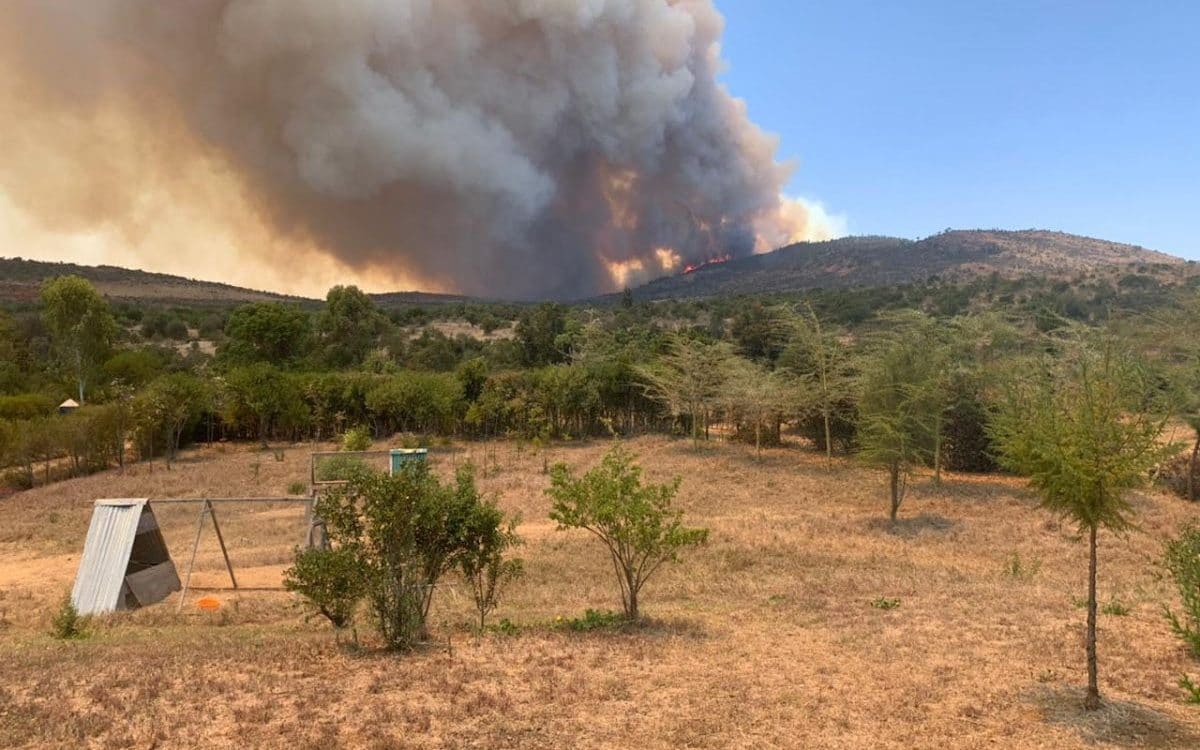April 13, 2022
-Daily Mail
The British Army has lost its right to diplomatic immunity against lawsuits in Kenya in a landmark ruling over a massive bushfire allegedly caused by ‘cocaine-taking’ UK soldiers based in the African country.
A huge wildfire at Lolldaiga Hills Ranch, a 49,000-acre sanctuary which houses the Nanyuki army base used by Britain for military drills, broke out in March last year and caused widespread devastation, putting more than 1,000 locals at risk of drought.
In the ensuing chaos, Linus Murangiri, an employee of Lolldaiga conservancy, was crushed to death by a vehicle as he rushed to help put out the fire, leaving behind his wife and two sons.
The African Centre for Corrective and Preventive Action (ACCPA) brought legal action against BATUK seeking compensation and reparations, alleging that the fire was ’caused by agents of the British Army Training Unit Kenya who tested positive for cocaine’.
BATUK denies its soldiers caused the fire and claimed they were protected from prosecution by diplomatic immunity.
But in a landmark ruling, Kenyan High Court Judge Antonina Bore argued that the UK Government waived diplomatic immunity to legal action by signing an agreement in 2015 governing the terms under which its soldiers would be allowed to operate in Kenya.
The pressure group and the locals argued that the terms of a Defence Cooperation Agreement signed seven years ago between Kenya and the UK Government was ‘equivalent to a waiver of state immunity’ in relation to civil claims brought as a result of the actions of British soldiers.
The judge agreed that ‘as a unit of the British Army, BATUK has no legal entity separate from the UK Government.
But she went on to find that the 2015 agreement did amount to a partial waiver of diplomatic immunity.
The judge said that under the terms of the agreement ‘it is evident that Kenya would have jurisdiction for civil claims and liabilities arising from activities in its territory under the agreement while the UK would have jurisdiction for civil claims and liabilities arising from activities in its territory’.
She added: ‘The allegation in the petition is that British soldiers caused a huge fire in the military training grounds in Lolldaiga, which is in Kenya. Kenya therefore has jurisdiction.’
The judge said the agreement ‘required the visiting forces to respect and be sensitive to the traditions, customs and culture of the communities in the places where they were deployed’ and ‘pay compensation within the framework of the Defence Cooperation Agreement where they were found liable for causing any death, injury, loss or damage to the persons and/or property of members of such local communities’.
‘In the court’s view this clause anticipated the kind of claim brought by the petitioners,’ she concluded.
The judge ordered that ACCPA and the local people must now go through a dispute resolution process in a bid to agree terms with the UK government.
If an agreement cannot be reached the case will return to be tried in the Kenyan courts.




